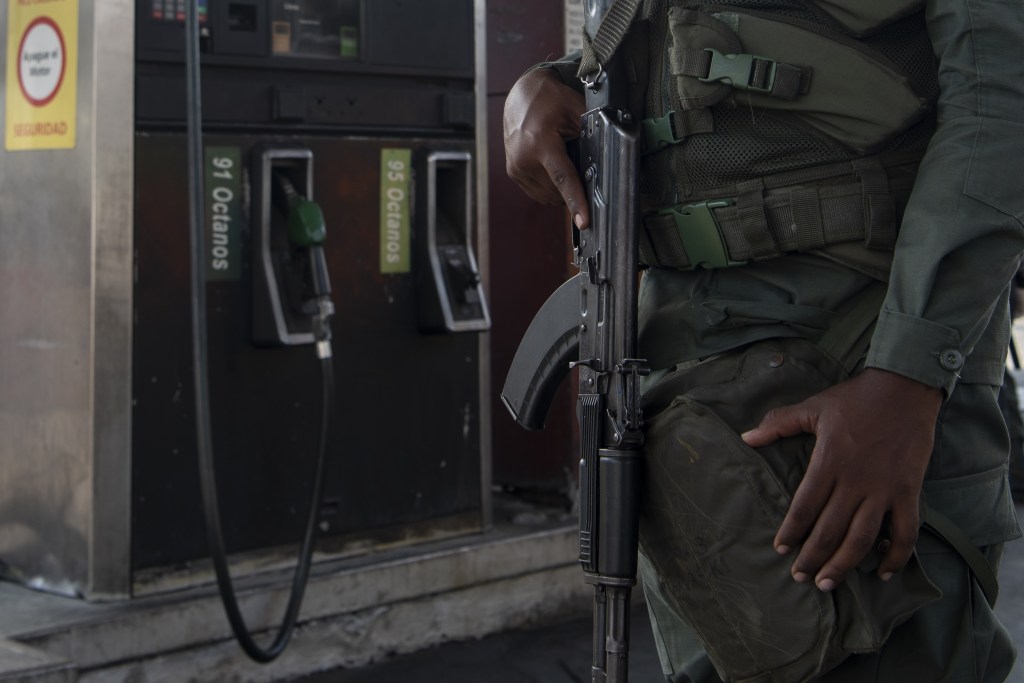Two prominent Venezuelan opposition leaders were taken from their homes in raids by intelligence services in the early hours of Tuesday, in what analysts say signals a lurch toward a harder government line in the crisis.
Leopoldo Lopez and Antonio Ledezma, both under house arrest for their political activities, were taken from their homes by agents of Venezuela’s intelligence service, according to their families.
Videos by VICE
“12:27 in the morning: the moment when the dictatorship kidnaps Leopoldo at my house,” Lopez’s wife, Lilian Tintori, wrote on Twitter, posting a clip of her husband being led into a vehicle marked SEBIN – the acronym by which the intelligence agency is known.
Lopez, previously jailed for his role in coordinating mass demonstrations in 2014, had been under house arrest since July. Human rights groups have denounced the charges against both him and Ledezma – another prominent opposition leader under house arrest over charges of leading a coup against Maduro – as politically motivated.
Ledezma’s daughter, Vanessa Ledezma, posted a similar video of her father being taken by SEBIN agents in his pajamas. Both women said they would hold Venezuelan President Nicolas Maduro responsible for the men’s fate.
The detentions are the latest sinister turn in Venezuela’s escalating political crisis, which has seen the deeply divided South American country slide into violence and dictatorship, according to both the opposition and international observers. Both detained men had recently encouraged mass protests against the government after it pressed ahead with elections for a powerful new legislative organ Sunday, despite broad opposition at home and overseas.
Diego Moya-Ocampos, senior analyst for the Americas at IHS Country Risk, told VICE News that, having achieved its objective in holding Sunday’s elections, the government was now emboldened to take a harder line on the opposition.
The detentions, he said, were an attempt to intimidate the opposition and dissuade them from escalating protests – though there are more demonstrations planned this week as members of the new assembly are sworn in Wednesday.
Taking high-profile figures like Lopez into detention also gave the government a potential bargaining chip against the U.S., as it sought to avoid escalating sanctions against individual officials and the oil sector – the country’s vital economic lifeline.
“It gives them something to negotiate with,” he said. “There are more than 400 political prisoners at the moment, but Lopez is the one who gets all the media attention.”
The U.S. targeted Maduro directly with fresh sanctions Monday in retaliation for Sunday’s vote, with White House national security adviser H.R. McMaster telling a news briefing that Maduro was “not just a bad leader; he is now a dictator.”
In response, the Venezuelan president was defiant. “The threats and sanctions from the empire don’t intimidate me,” he told a news conference Monday.
But Moya-Ocampos said that for all the bluster, international sanctions were perhaps the best hope of changing Maduro’s course.
“Despite the strong rhetoric, sanctions are something the government really does fear.”




